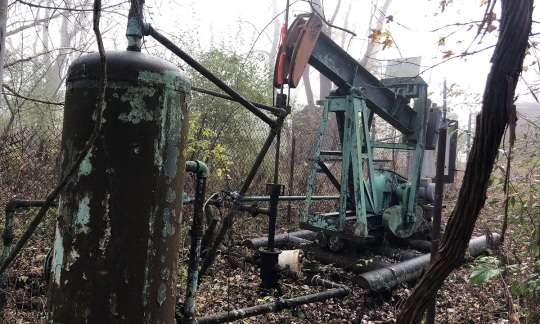Mars Rover Team Excited After Finding… 'Rock. Rock. Rock. Rock. Rock. Rock. METEORITE!'
Always keen to anthropomorphize their robots, NASA put out a social media post of one of their Mars rovers coming upon an exciting discovery.

The Biden Administration is spending hundreds of millions of dollars to close abandoned oil and gas wells across the country, but what if they could solve the problem of renewable energy storage instead?
3,000 feet below the Midwestern state in a geological structure of porous sandstone, researchers from the University of Illinois deposited excess energy as heated water which could be used to generate electricity in the same way that geothermal power plants function.
The Illinois Basin is ideal for oil extraction, but has no subsurface source of heat to produce geothermal power. The same reasons however that make it ideal for extracting oil make it perfect for a potential new method of solving the problems with renewable energy storage.
The Illinois Basin boasts the correct thermal conductivity for the deposition of water heated through excess renewable energy production from solar or wind. Minerals with high conductivity are sandwiched between insulative layers, creating the conditions for the water to retain its heat enough to generate electricity.
"Many of the same properties that make a subsurface rock formation ideal for oil and gas extraction also make it ideal for geothermal storage," said lead researcher Tugce Baser, an environmental engineering professor at the University of Illinois, in a statement. "And because our test site is a former gas well, it already has most of the needed infrastructure in place."
To test the heat storage capacity of the site, the researchers injected water heated to 50 degrees Celsius into the well for three days of injection in April 2021. After shutting down the well, the team monitored changes in pressure, thermal conditions, and hydraulics for five days.
"Our field results, combined with further numerical modeling, find that the process can sustain a thermal storage efficiency of 82%," Baser said.
The study further reports an average overall net cost of electricity generation of $0.138 per kilowatt-hour, making the proposed system economically viable and profitable.
"Our findings show that the Illinois Basin can be an effective means to store excess heat energy from industrial sources and eventually more sustainable sources like wind and solar," Baser said. "The underground reservoir essentially acts as a large underground battery while repurposing abandoned oil and gas wells. It is a win-win situation."
SHARE This Productive Use Of Existing Infrastructure With Your Friends…
Be the first to comment